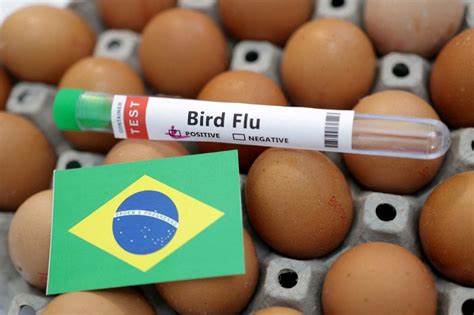
A document signed by the Brazilian government’s agriculture minister has stated that Brazil has declared a six-month animal health emergency following the discovery of the country’s first-ever case of the avian influenza virus in wild birds.
At least eight cases of the H5N1 virus in wild birds have been confirmed by the South American country, which is the largest exporter of chicken meat in the world with $9.7bn in sales last year.
One of these cases occurred in the state of Rio de Janeiro and seven others in the nearby state of Espirito Santo.
According to the World Organization for Animal Health’s regulations, wild bird infections with the H5N1 subtype of the avian flu do not result in trade restrictions.
However, if bird flu is discovered on a farm, the entire flock is typically killed, and importing countries may impose trade restrictions.
Later on Monday May 22, the Brazil’s agriculture ministry announced that it had established an emergency operations center to coordinate, plan, and assess “national actions related to avian influenza.”.
The government is on high alert in Brazil despite the fact that the majority of the country’s meat-producing states are in the south due to the confirmed cases of avian flu in wild birds, which has been known to spread to commercial flocks in some other nations.

In Espirito Santo, where Brazil confirmed the first cases in wild birds last week, the Health Ministry reported over the weekend that samples from 33 suspected human cases of avian influenza had tested negative for the H5N1 subtype.
Five cases of human bird flu were reported last year. However, the World Health Organization reports that the mortality rate for H5N1 avian influenza cases in humans in the past was 53%.
Source-Aljazeera





